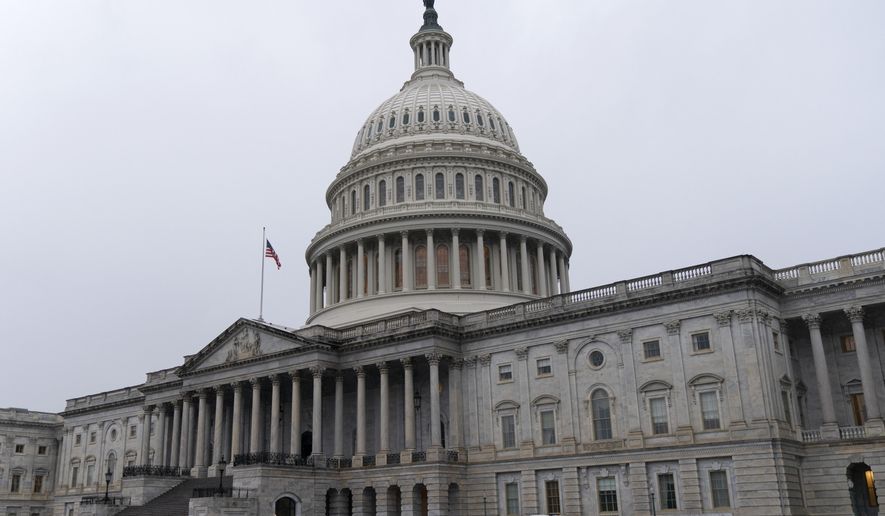OPINION:
Pollster David Winston has been arguing for some time the public’s support for the infrastructure measures Congress is considering has more to do with labeling than with content.
A poll he conducted in June found the American people – Democrats and Republicans alike – largely reject the idea that government spending will lead to economic growth. When the term infrastructure was introduced, however, support for it as a growth measure climbed considerably. “Given those dynamics, it is no wonder the Democratic strategy is to define everything in the context of infrastructure as much as possible,” he wrote.
The Senate has already approved a bipartisan compromise package smaller than what House Speaker Nancy Pelosi, D-Calif., wants.
Their $1.2 trillion plan is heavier on funding for roads, bridges, airport, and railway projects than the liberal’s $3.5 trillion programs backed by the likes of AOC and the Biden White House.
Neither bill is likely to pass easily, especially given Mrs. Pelosi’s insistence on the budget-busting reconciliation bill the progressives have championed is approved first. A few defecting moderates Democrats could kill the measure, as could a few progressives kill the bipartisan infrastructure bill. Mrs. Pelosi can only afford to lose three Democratic votes in her slim majority.
Both bills contain funding needed for things for which the federal government is responsible. They also contain extraneous measures that have nothing to do with roads and bridges and airports. This is a matter of concern. Rushing them through as leverage to get the votes to pass the budget reconciliation would be a disservice to the American people. The price tag on either is too high – especially with more than $1 trillion in state COVID-19 emergency relief still unspent – and there are too many pet projects to let even the compromise, bi-partisan bill through without considerable revisions.
The compromise legislation still funds big, questionable programs like the $110 billion set aside for physical infrastructure repairs related to climate change and the $73 billion to fund clean energy as well as small ones like the $10 billion allocated to clean PFAS chemicals in our water, an effort the so-called environmental groups say must be a priority.
In truth, PFAS chemicals are far from the most important issue facing U.S. waterways and water supplies. The EPA cites industry and agriculture, human and animal waste, and water treatment and distribution as common sources of drinking water contaminants but does not mention PFAS in this context. Therefore, the need for their remediation is just a shiny object that got enough attention from the right combination of lawmakers, lobbyists, and congressional staff to get into the bill.
That might not be a problem if we didn’t have to worry about every penny the government spends now that total debt is up above a single year of U.S. GDP. We need to focus on important problems like ensuring the replacement of outdated, dangerous lead water pipelines is adequately funded.
Before doing any more to move either infrastructure bill, Congress should take a hard look at what’s already in them and pare them down even more. The funds misallocated to special interest projects should be reprogrammed or, better, cut entirely. Spending restraint matters, even on the important things.




Please read our comment policy before commenting.